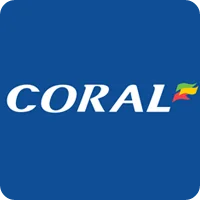The trainers’ championship has been in the news of late thanks in no small part to Willie Mullins extraordinary run of big race wins that has seen him lift the National Hunt title which, in common with its flat equivalent is done based on prize money.
A look at the final standings shows that while Mullins lags behind the likes of Paul Nicholls, Dan Skelton, Nicky Henderson, Olly Murphy and co in the number of winners stakes his exploits at Cheltenham, Aintree, Ayr and Sandown in the last couple of months have propelled him to the top of the standings.
While I obviously have no issue with him being crowned Champion National Hunt Trainer on account of the rules being written and known well before the start of the season I do have to question whether there isn’t a better way of judging it.
As seen from Mullins performance a good Cheltenham, plus a Grand National win and some other big race successes has seen him come from a fair way behind to lead in a race that started for those based in the UK way back in May last year.
The emphasis on big race wins and the weighting of prize money etc to the spring festivals that Gordon Elliott, a trainer who has had just twenty UK winners this season and hasn’t been in the conversation with regard to outright Championship honours finished fifth with only the previously mentioned Mullins, Skelton, Nicholls & Henderson ahead of him.
Alternative Methods
The Jump Jockeys Championship, and indeed the Flat Jockeys Championship are both done by total number of winners, a method which would have seen Paul Nicholls crowned Champion with 131 winners from his 750+ runners.
While I’d prefer to see a Champion crowned by total number of winners over the season some would object to that on the basis that a heap of winners in low grade handicap hurdles and chases would count for more than three or four Graded race wins in competitive spring contests.
A better idea may well be to implement a minimum number of winners, or runners to qualify to be crowned Champion Trainer.
A minimum of 149 runners would see Willie Mullins fall just one short of the threshold while a number of 200 runners may see him and Gordon Elliott targeting the smaller races throughout the season.
That in itself could have knock on effects for racing, particularly in the north with some trainers already struggling likely to have fewer winners.
Flat Championships
While the Flat season started with a good couple of days racing at Doncaster last month the Flat Jockeys Championship only gets underway on 2000 Guineas Day, ending in mid-October.
Thus all winners from 1st January to 3rd May are discarded with regards to jockeys and any winners ridden on 20th October or later will also not count.
I have an issue with this in so much as Flat racing in 2024 is a year round sport with racing action taking place on virtually every day of the year.
It’s well known that some of the best jockeys in the world are riding in the UK and also common knowledge that a number will head overseas for lucrative riding contracts abroad during the UK winter.
I think that is unfair on those who stay behind and ride a full all-weather season if they then find themselves starting afresh on zero winners with the riders who have seen fit to ply their trade abroad during the all-weather season, which lets be honest is probably the least attractive time to be riding in the UK.
I can certainly see an argument for a turf trainers title and an all-weather trainers title however the current set up of including all the races regardless of surface between the start in May and end in October is unsatisfactory in that regard.
At least however the two Jockeys Championship’s are done by number of winners while s the dates for the Flat Trainers Championship differ greatly to the jockeys equivalent given it runs form 1st January to 31st December.
As Things Stand
While it seems highly unlikely that the placings will be the same at the years end Andrew Balding holds a roughly £65,000 lead in the Trainers Championship over Mick Appleby at the time of writing.
There is over £100,000 back to third placed Charlie Johnston however expect the forthcoming classics to see Irish handler Aidan O’Brien leapfrog a few of these with strong fancies in both the 1000 and 2000 Guineas among other races this weekend.
A number of years ago Richard Hughes suggested that only races worth over a certain amount of money should count towards the jockeys championship, while not necessarily against such a proposal it seems unfair to rule out a proportion of races based purely on prize money, rather than say field size numbers or whether it’s a handicap/maiden/conditions race etc.

































